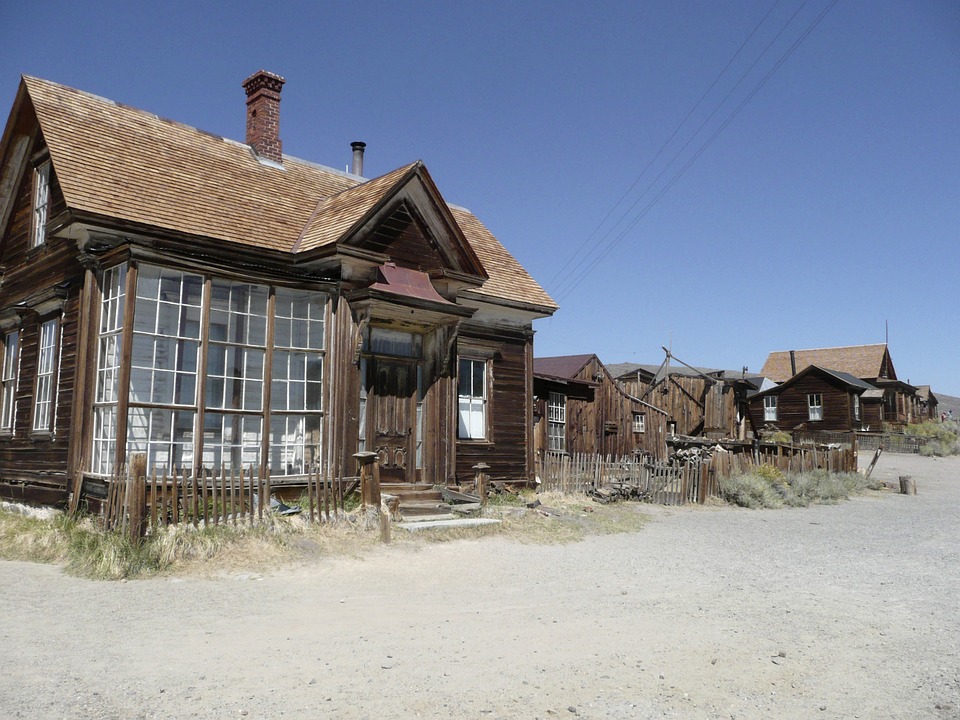
It is said that the ghosts of Tagore House or Jorasanko Thakur Bari reside in the venerable house of the famed Bengali poet and philosopher. Over the years, Rabindranath Tagore's family has talked about a haunting that took place at the residence.
In the north of Kolkata stands Tagore House, in the anglicized way of saying Jorasanko Thakur Bari, a grand mansion that once served as the residence of the illustrious Tagore family, built in 1785. The stately mansion with high ceilings, black and white marble floors and arched doors is today a nod to how powerful the Tagore family's ancestral home was. They were one of the leading families in Kolkata and key players in the Bengal Renaissance.
This sprawling palace is a testament to the legacy of Rabindranath Tagore, the Nobel laureate and politician who called it home. In 1913, he was the first foreigner to receive the Nobel Prize in Literature. His ancestral home is now a museum and, according to his family, has always been haunted.
Rabindranath Tagore and his life of ghosts and spirits
Several eerie stories surround the Tagore House with an aura of mystery, adding to its charm as a haunted abode that is said to come alive at night. When Rabindranath Tagore was alive, he was also very interested in the supernatural and after the death of his father, Debendranath, he often held board sessions in the building.
Even in his writings, like the Mastermoshai story, memorable stories happen. One particular story about a student who drove his teacher to suicide is said to have been inspired by something that happened in Jorasanko Thakur Bari, and most of the ghost stories come from his era.
Rabindranath Tagore (Rabindranath Tagore) was born in Jorasanko Thakur Bari in 1861, and his poetry and works have been described as both spiritual and magical.
Some of the most chilling accounts include ghostly footsteps echoing in empty corridors and the haunting sound of anklets tinkling in abandoned rooms and other strange occurrences inside the Jorasanko Thakur Bari building.
These chilling tales have been painstakingly documented and passed down to the Tagore family over the years, finding their way into magazines such as Thakurbarir Bhooter Golpo (Ghost Stories of Thakurbari), a collection chronicling the spine-chilling legends of the House of Tagore.
The Visitation of Jorasanko Thakur Bari
One of the stories recorded is about the death of Rama, who was Tagore's granddaughter. The family was devastated by the girl's death and did not want to send the body back. Instead, that evening, they laid her downstairs and waited, saddened.
Amita Thakur was one of the women in the family who sat in the next room that evening and talked about what happened next. Suddenly, the lanterns in the room went out one by one, in the row where they hung. Everyone in the room got scared, not daring to turn on the lightweight again. And when a frigid wind started blowing out of nowhere, they knew the spirit was with them.
A ghost walking around Tagore's house
Another story told in the Tagore House concerns the death of Tagore's nephew, Nitish. In the period immediately after his death, the family claimed that Nitish was seen almost every evening walking down his favorite corridor. Which also says something about how large this house was.
There were also stories of relatives living in Jorasanko Thakur Bari waking up to find a ghostly figure standing and watching them.
Dead wife in the photo
In the book detailing the haunting of the mansion, they also discuss one of the mysterious photos taken of the family that sparked a debate about how, once again, a ghost in the family remained in the Tagore House.
Mrinalini Devi, wife of Rabindranarth Tagore, was also a translator and was described as a woman with great personality how they described her. She died in 1902 after a stern illness that doctors failed to diagnose. She was only 28 years venerable and, according to legend, her spirits appeared from time to time.
In 1904, the family gathered for a family photo and is said to have sat as a shadow behind her husband in the photo two years after her death. Was this the last visitation from her? Some say he still haunts this place.
The Haunted House of Jorasanko Thakur Bari
As dusk falls and the shadows lengthen, the Tagore House takes on a hauntingly lovely appearance, and its majestic façade hides secrets that defy rational explanation.
Whether fueled by imagination or rooted in reality, the haunting rumors surrounding this historic palace continue to captivate the imagination of those who dare to delve into its shadowy depths. A story as good as the fictional stories written in the Tagore House.
Reference:
https://www.boldsky.com/insync/life/2012/ghosts-famous-people-030152.html?story=1
10 haunted places in Kolkata that you MUST visit to see what horror is really like
Jorasanko Thakur Bari – Wikipedia
Transforming the Samsung Galaxy S24 Ultra into a technological marvel | – India times
Rabindranath Tagore – Wikipedia
Image Source: Pixabay.com



